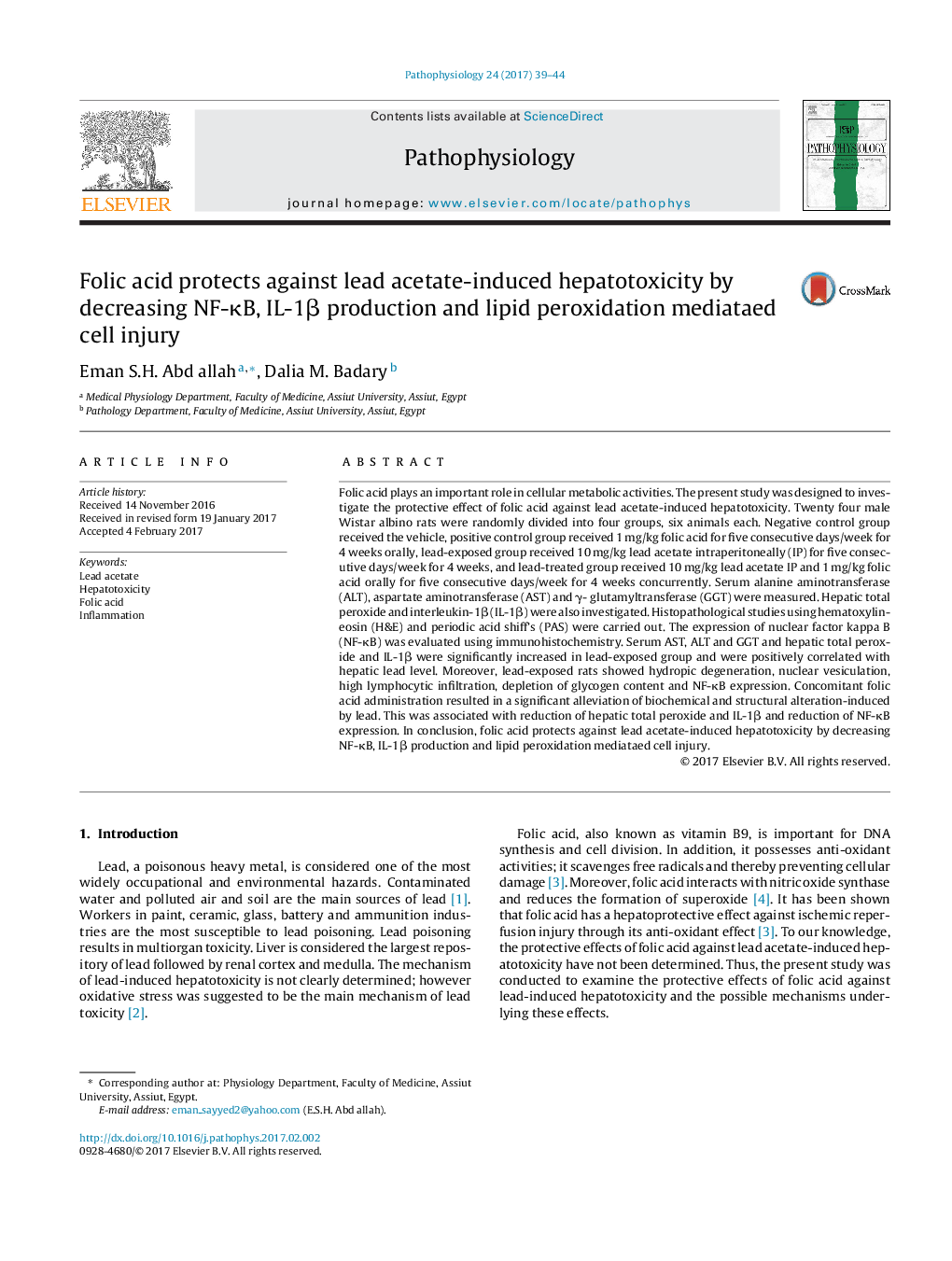| کد مقاله | کد نشریه | سال انتشار | مقاله انگلیسی | نسخه تمام متن |
|---|---|---|---|---|
| 5716560 | 1411153 | 2017 | 6 صفحه PDF | دانلود رایگان |

Folic acid plays an important role in cellular metabolic activities. The present study was designed to investigate the protective effect of folic acid against lead acetate-induced hepatotoxicity. Twenty four male Wistar albino rats were randomly divided into four groups, six animals each. Negative control group received the vehicle, positive control group received 1 mg/kg folic acid for five consecutive days/week for 4 weeks orally, lead-exposed group received 10 mg/kg lead acetate intraperitoneally (IP) for five consecutive days/week for 4 weeks, and lead-treated group received 10 mg/kg lead acetate IP and 1 mg/kg folic acid orally for five consecutive days/week for 4 weeks concurrently. Serum alanine aminotransferase (ALT), aspartate aminotransferase (AST) and γ- glutamyltransferase (GGT) were measured. Hepatic total peroxide and interleukin-1β (IL-1β) were also investigated. Histopathological studies using hematoxylin-eosin (H&E) and periodic acid shiff's (PAS) were carried out. The expression of nuclear factor kappa B (NF-κB) was evaluated using immunohistochemistry. Serum AST, ALT and GGT and hepatic total peroxide and IL-1β were significantly increased in lead-exposed group and were positively correlated with hepatic lead level. Moreover, lead-exposed rats showed hydropic degeneration, nuclear vesiculation, high lymphocytic infiltration, depletion of glycogen content and NF-κB expression. Concomitant folic acid administration resulted in a significant alleviation of biochemical and structural alteration-induced by lead. This was associated with reduction of hepatic total peroxide and IL-1β and reduction of NF-κB expression. In conclusion, folic acid protects against lead acetate-induced hepatotoxicity by decreasing NF-κB, IL-1β production and lipid peroxidation mediataed cell injury.
Journal: Pathophysiology - Volume 24, Issue 1, March 2017, Pages 39-44